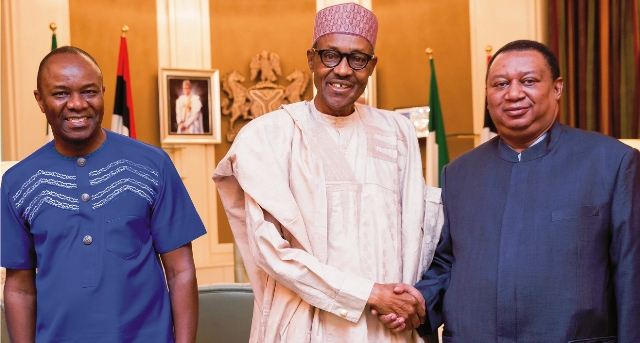Business
Nigeria Loses N1.22trn To Deficit Oil Production

Nigeria was unable to produce about 22.658 million barrels of crude oil valued at N1.22trillion in the first quarter of this year due to its persistent inability to meet the crude oil production quota approved for the country by the Organisation of Petroleum Exporting Countries (OPEC).
Data contained in various OPEC reports released in different months this year showed that Nigeria failed to meet its oil production quotas in January, February and March 2022.
Figures obtained from OPEC showed that the crude oil production quota approved by OPEC for Nigeria in January this year was 1.683 million barrels per day.
OPEC also approved 1.701mb/d and 1.718mb/d for Nigeria in the months of February and March 2022 respectively, according to data contained in its different reports on oil production approvals for its members.
In the highlights of OPEC’s latest Monthly Oil Market Report for April 2022, it was observed that Nigeria’s crude oil production from secondary sources in January 2022 was 1.413mb/d.
This dropped to 1.378mb/d in February and plunged further to 1.354mb/d in March this year.
The figures indicates that Nigeria’s crude oil production fell short of the OPEC approved quota in January by 270,000 barrels daily, which implies that the country was unable to produce 8.370 million barrels to meet its approved target for that month.
In February, the daily production loss, when compared to what OPEC approved for Nigeria, was 323,000 barrels, translating to 9.044 million barrels in the review month.
In March, the country’s daily oil production was 364,000 barrels lesser than the OPEC approved target, meaning that Nigeria’s production in March was 11.284 million barrels lower than what was expected from it.
The implication is that in the first quarter of this year, Nigeria failed to produce 28.658 million barrels of crude oil to meet its production quota as approved by OPEC.
On the revenue side, oil sector data from the global statistical firm, Statistica, indicated that in January 2022 the average price of Brent crude, the international benchmark for oil, was $86.51/barrel.
Therefore by not being able to produce 8.370 million barrels of crude in January, Nigeria lost $724.1million that month, or N301.22billion (at the official exchange rate of N416/$).
For the month of February, the average price of Brent crude was $97.13/barrel and Nigeria failed to produce 9.044 million barrels of oil to meet the quota approved for it by OPEC in the review month.
This implies that the country lost $878.44million or N365.43billion due to its inability to meet the oil production quota approved for it by OPEC in February.
The highest loss was recorded in March, as the average price of Brent was put at N117.25/barrel, while the country failed to produce 11.284 million barrels of crude in the same month.
This implies that Nigeria failed to earn the sum of $1.323billion translating to N550.388billion in March due to its failure to meet the oil production quota approved for the country by OPEC.
Cumulatively for the three-month period, the country lost about N1.22trillion due to its inability to meet the crude oil production approved for Nigeria by OPEC in the first quota of 2022.

